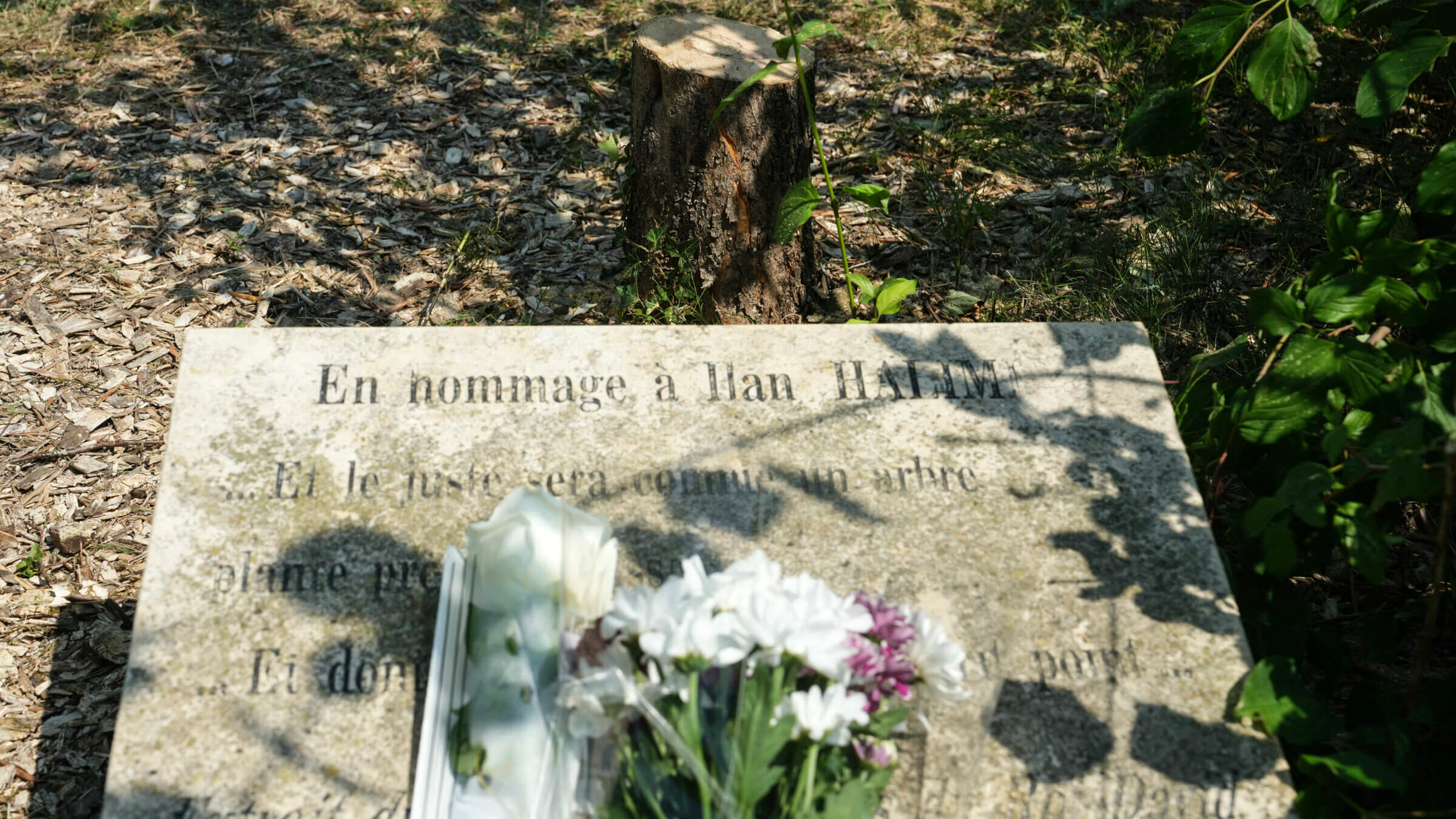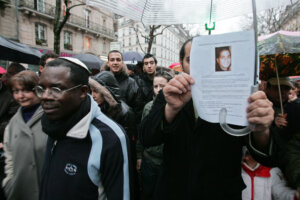If an antisemite chops down a memorial tree in Paris, how do we know it makes a sound?
The destruction of an olive tree planted in honor of murder victim Ilan Halimi has drawn widespread condemnation but little press

The vandalized memorial of Ilan Halimi, a young French Jew who was kidnapped and tortured to death in 2006. Photo by Getty Images
Ilan Halimi, a young man who worked at a Paris boutique selling cell phones, was kidnapped nearly 20 years ago, on Jan. 20, 2006, by a crime ring calling itself the “Gang of Barbarians,” led by a thug named Youssuf Fofana, the son of immigrants from the Ivory Coast.
Shackled and naked, Halimi was held captive in the Paris suburb of Bagneux. For more than three weeks, Fofana and his crew tortured their captive, repeatedly beating and lacerating his body with knife cuts and burning his face with cigarettes while they demanded a ransom of 450,000 euros from his family. On Feb. 13, when the ransom still had not materialized, Fofana abandoned the dying Halimi near a train track. He was found hours later and died while being transported to a hospital.
How could the family of this young man, who sold cell phones for his meager living, scrape together this amount? For Fofana, the answer was simple. When he was asked to identify himself at his subsequent trial, Fofana replied, “I am Arab, African, Islamist, Salafist.” It is hardly worth the effort to wonder what that jumble of labels meant to him. This is especially true because these various labels obscure a simple fact: First and foremost, Fofana was an antisemite who, in his fevered and warped imagination, believed all Jews, by virtue of being Jewish, were rich.
The story of this horrifying affair came back to me last week because of a fait divers. This is the French phrase for an incident, minor and ordinary, that is usually tucked into the back pages of a newspaper. Last Friday, one such fait divers could be found in the Agence France Presse, which reported that an olive tree planted in a public garden in the suburb of Épinay-sur-Seine had been cut down. The tree had been planted in 2011 to honor the life of Ilan Halimi.

Though Le Monde carried the fait divers, I nevertheless missed it. The story was easy to miss in the American press too. The New York Times, the paper of record that publishes all the news fit to be printed, neglected to carry the story. Were it not for a Parisian friend who grew up in Épinay and told me about it in an anguished voice, I might never have learned about it. (I subsequently discovered that our own Associated Press, along with Fox News, did carry the story.)
Obviously, French officials did not let the event go unremarked. The police are now investigating the case, which they have designated an antisemitic act, and local and national leaders were quick to denounce it. David Elbaz, the vice-president of Épinay’s tightly knit Jewish community, described the event as “shocking,” noting that it was as if Halimi had been murdered a second time. President Emmanuel Macron echoed this sentiment, insisting “the nation will not forget this child of France who was killed because he was Jewish.”
No less obviously, and all too ironically, that this act of anti-Jewish hatred was relegated to a fait divers means that it is not shocking and the death of Halimi has already been forgotten. In his remarkable novel, The Book of Laughter and Forgetting, Milan Kundera observed that the “struggle of man against power is the struggle of memory against forgetting.”
Yet the context to this struggle, though existential, was also fairly simple in Kundera’s world, one defined and divided by an iron curtain. Power now takes many forms, ranging from authoritarian states seeking to suppress the past and social platforms demanding our attention to a news cycle spinning ever faster and our very lives fragmenting ever more quickly.
What is truly shocking about the destruction of the olive tree in Épinay, whose branches symbolize that peace and roots can run deep, is that symbols have been replaced by memes, flattened and soon forgotten, and its roots can, with enough effort or enough fear, be torn and pulled up. In a study released last year by the research firm IFOP, 86% of French Jews fear that they will be victims of, well, fait divers: antisemitic acts that, like the olive tree, might be reported in the press to a world too pressed by time to read it, much less think about it. The force of forgetting seems fated to get the better of memory of most everyone except French Jews.
















